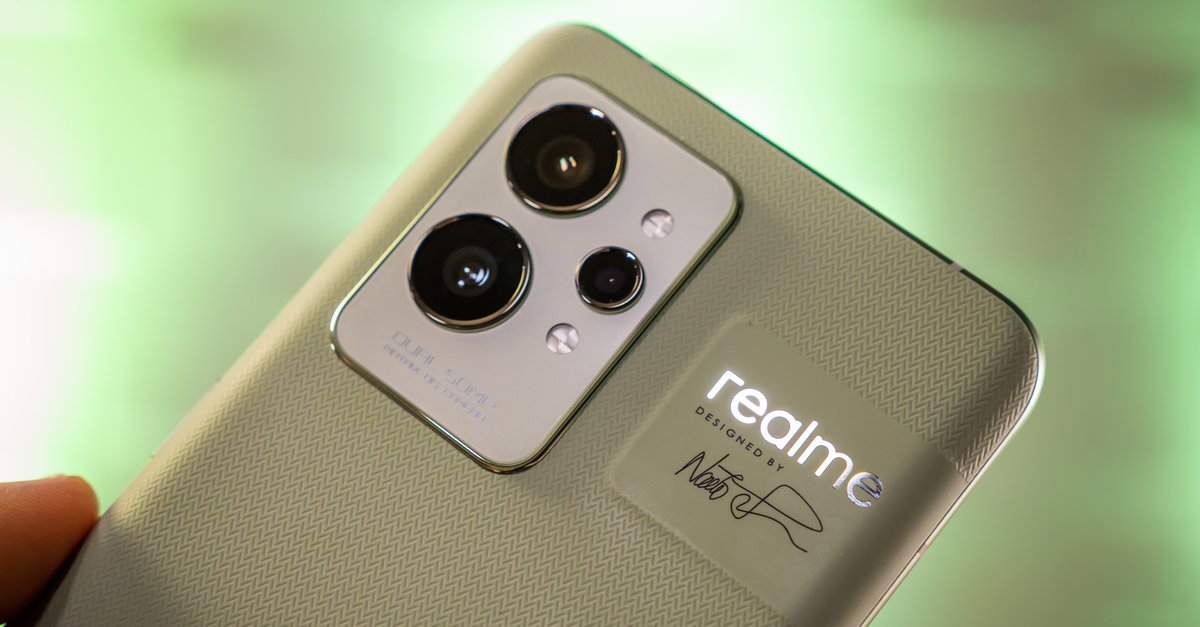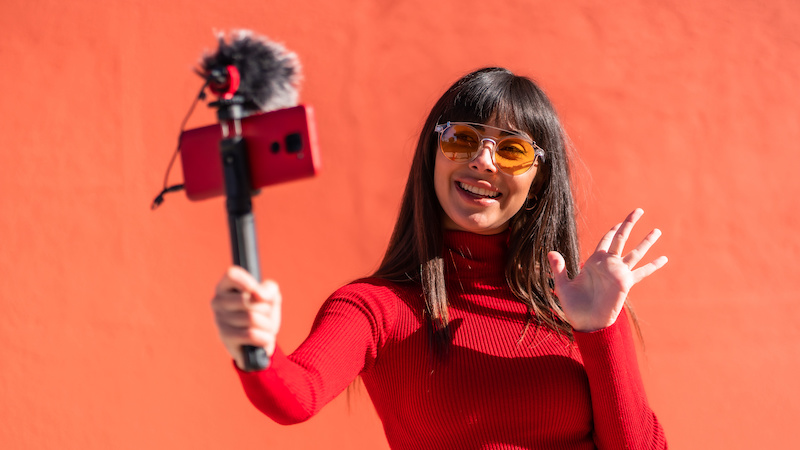When women start up for women
No time right now?
Whitney Wolfe Herd became one of the few tech billionaires using the dating app Bumble. These three founders are also building companies in Germany by women for women.
In her first interview as a billionaire, 31-year-old Whitney Wolfe Herd wears a yellow jacket, behind her is a shelf in the form of a honeycomb, similar to the logo of her dating platform Bumble.
Her app is about bees and flowers. But at Bumble, women are the bees and have to find a flower. Men cannot take the first step on Bumble.
Whitney Wolfe Herd has a knack for names. According to their own information it was she who came up with the name “Tinder” when she was still working at Tinder’s parent company, Match Group. Wolf Herd was head of marketing there at a time when Tinder’s user numbers skyrocketed.
In 2014, Wolfe Herd sued Match Group for sexual harassment and left the company. In the indictment, she said that other bosses had insulted her and deprived her of the title of “co-founder”. To report according to Wolfe Herd and the Match Group settled out of court for a little over a million US dollars.
Bumble works like Tinder – only that for the founder, the focus is on the women’s experience. (Photo: dpa)
Out of frustration over the experience with Tinder and the Match Group, Wolfe Herd founded Bumble shortly afterwards: a dating app on which women take the first step. And 70 percent of the boardroom is occupied by women. Wolfe Herds around eleven percent of the company made her billionaire after the IPO.
The billion-dollar company Bumble has two big ideas: First, to build a company that addresses the needs of women. That sounds mundane, but so far, male bodies, lifestyles and Data is the measure for almost all productsNot specifically marketed for women: from the size of the cell phone screen to police vests.
Second: The idea of building a company that is run by women and in which women feel comfortable. That doesn’t sound like rocket science either. But women are still an exception in the executive floors of Silicon Valley. In the “Women Who Tech” survey 44 percent of female founders stated that they had been harassed at work before. Bumble is meant to be a company “made by women, for women,” says CEO Whitney Wolfe Herd.
The German startup scene also disproportionately encourages men. But there are also female founders in the German startup scene who develop products for women – and thus discover a large but underserved niche. What are your challenges?
Companies by women, for women
Julia Rittereiser is the founder and boss of Kora Mikino. Before founding the period underwear company, Rittereiser spent five years at Google in Dublin, San Francisco and Germany.
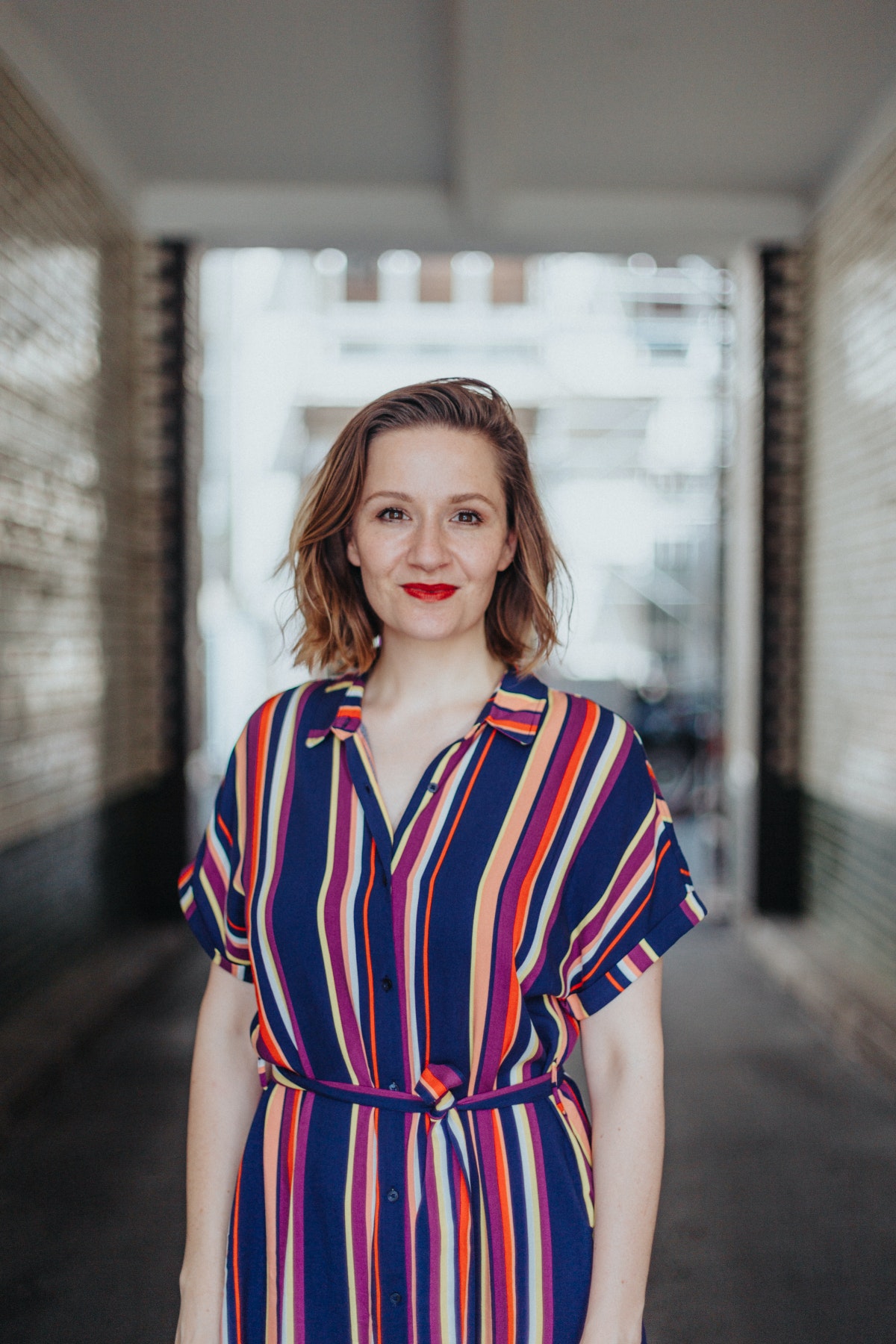
“Period pain has a huge impact on the lives of menstruating people. And all you get is ibuprofen. ”- Julia Rittereiser, founder of Kora Mikino. (Photo: Nora Tabel)
Rittereiser is currently developing a cream against period pain with Kora Mikino. “Period pain has a huge impact on the lives of menstruating people. And all you get is ibuprofen, ”she explains in a phone call. Her cream is a mixture of organic chili oil and lemon. The application mechanism leads to micro-irritation of the skin and the combination creates heat. The cream should act like a hot water bottle, just to take away. “It has more bangs than a chemical cream. You can have it in your handbag, apply it on the toilet and you have four to five hours of warmth, ”says Rittereiser.
“When I pitched the idea for a loan at the bank, the men around said: ‘Period pain? Better do something for hemorrhoids or incontinence underwear for men! ‘ Period pain was an absurd topic for them, despite the numbers and an innovative product, ”explains Rittereiser.
“How often does the period come?”
“Female business models are not necessarily the forerunners when it comes to the size of the investments,” says Ann-Sophie Claus in a telephone conversation. Claus is the founder of The Female Company – a company for period and pregnancy products – and a competitor of Rittereiser. “I understand that because I am building a solution for a need that many investors cannot understand.” In some fundraising rounds, says Claus, “you have to do a biology lesson first. The questions then ‘How often does the period come?’ “
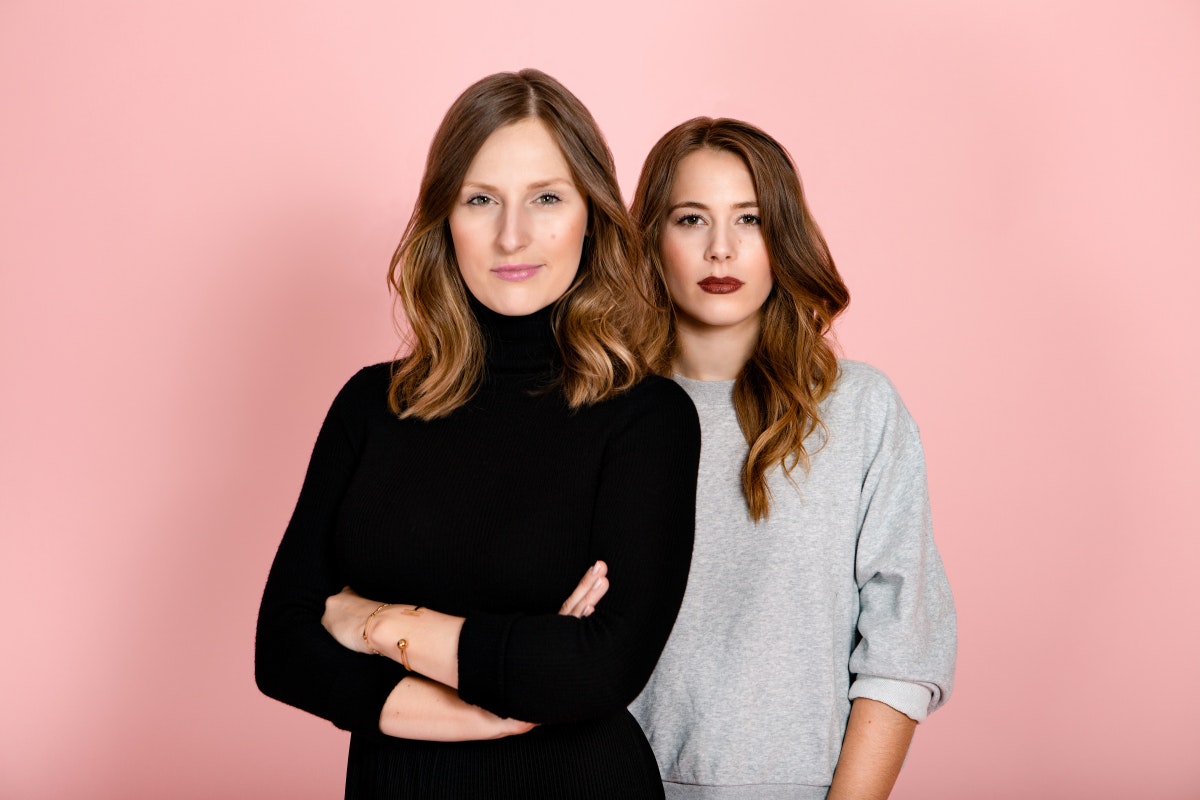
Ann-Sophie Claus and Sinja Stadelmaier, the founders of The Female Company. (Photo: Linda Ambrosius)
Investors – and more ROI
Bettine Schmitz is an angel investor at Auxxo Investments, an investment pool that tries to promote companies run by women in particular. Studies of the Boston Consulting Group, the Kauffmann Foundation or MassChallange were able to show that startups from female founders receive significantly less money on average, but have a return on investment that is more than twice as high.
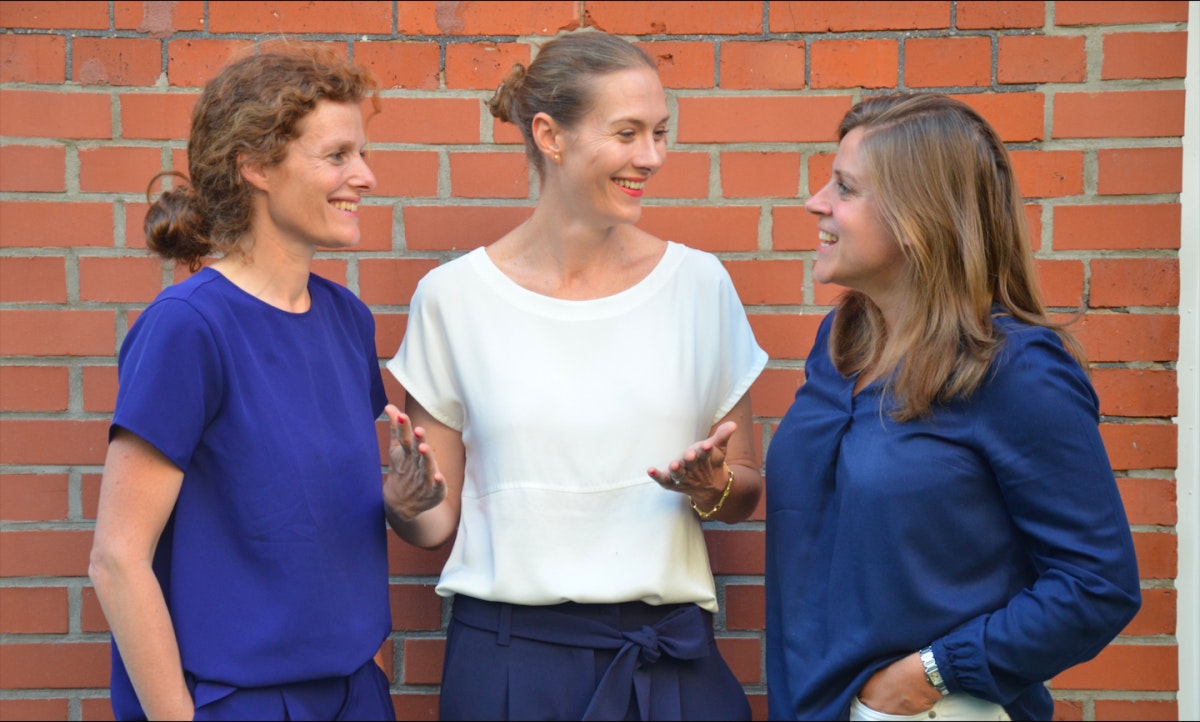
Bettine Schmitz (r.) And the angel investors from Auxxo. (Photo: Auxxo)
“If someone had made something like period underwear for men, the money would have been thrown away,” says Schmitz in a phone call. According to Schmitz, the fact that female founders find it more difficult to get money, although according to studies they use it better than founders on average, has a lot to do with the fact that investors are mostly men. “Investing is a bit of analysis, but especially at the beginning, it is the fantasy that decides how big something can be,” says Schmitz. “If you don’t know a problem, you can’t understand it. And if the investors are all men, women’s issues are difficult to understand. “
8 million for a mini-laboratory
One Fem-Tech founder who has already fundraising behind her is Eirini Rapti from Inside. Rapti raised eight million euros for its product: a laboratory the size of a tennis ball in which women can use test sticks and saliva to measure their hormonal balance and determine their fertile days.
“Hormones and how they change over the cycle are the reason why we ovulate, why we menstruate or not, whether a pregnancy remains or we miscarry, and also determine when we go into menopause. The better we understand how hormones change at different ages, the better we can take care of women, ”said Rapti on the phone. Previously, according to Rapti, hormones could only be measured in urine or blood, or saliva had to be sent to a clinic. Inne is the only certified medical device that women can use to measure hormones in saliva at home.
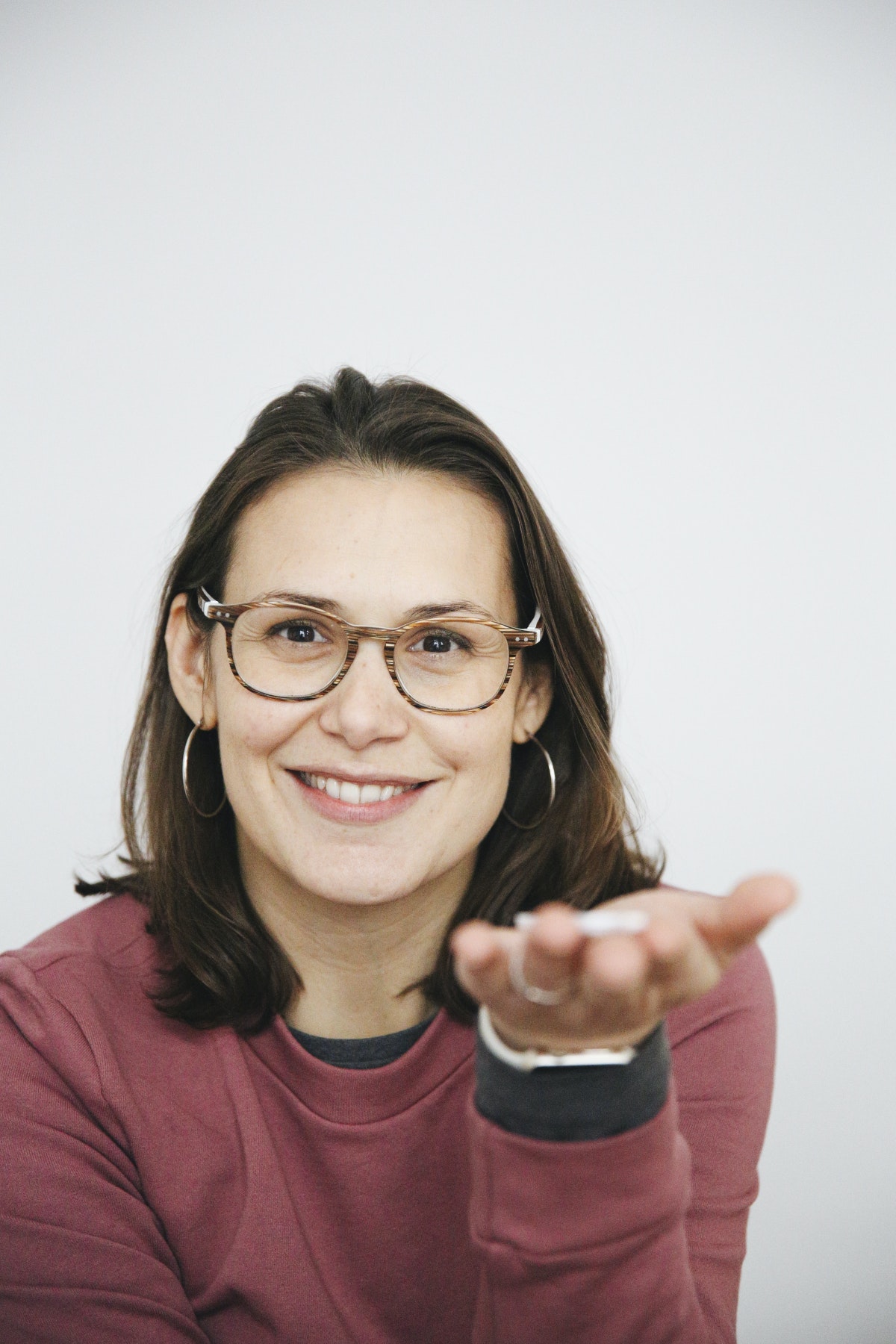
Eirini Rapti, CEO and founder of the Inne mini-laboratory. (Photo: Inne)
But Rapti didn’t have it easy with investors either. Some came to their pitches unprepared and didn’t understand the problem, says Rapti. “Why would a woman want to use this every day?” They would have asked – asking for examples of other products women buy every month. (The test sticks for the mini-laboratory can be ordered monthly.)
“Can we also use this for men’s health?” – A man after a pitch for the hormone laboratory Inne.
“After a pitch, one guy asked me, ‘I love the way the product looks. Can we use this for men’s health too? Measure testosterone, tell people when they need to exercise more. ‘ (…) You have to laugh, otherwise you will go crazy, ”says Rapti.
“The investment world is generally unequal,” said Rapti. “But, as Eirini, I don’t think anything is impossible until I have done my best to try. It’s already tough psychologically. If I allow myself to believe, even for a minute, that I am a victim, that it is too hard, it will not work. “
Also interesting: why Tinder is even worse for me and my friends

